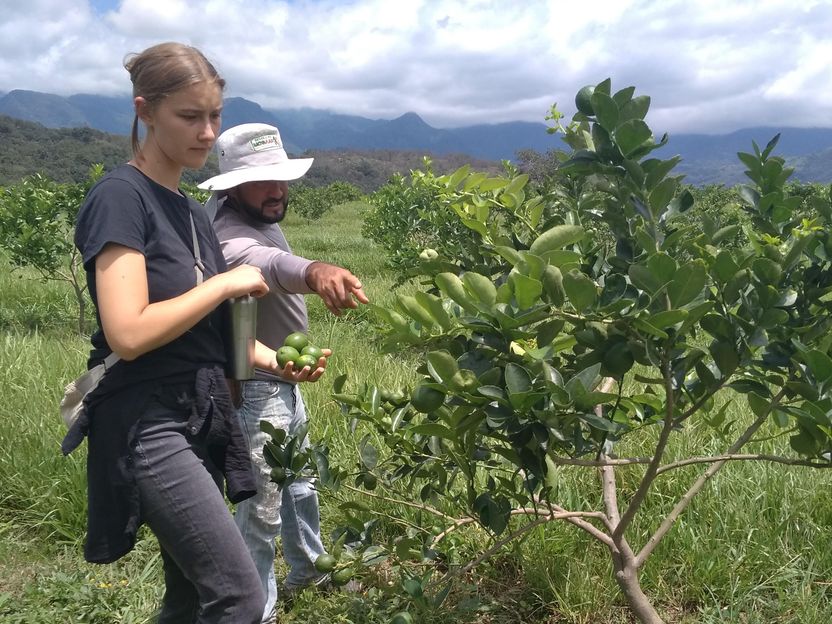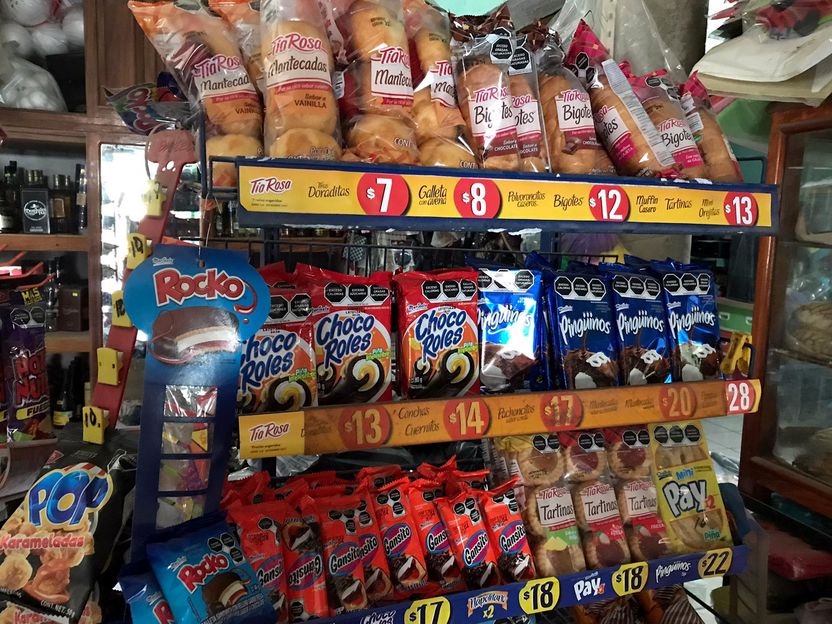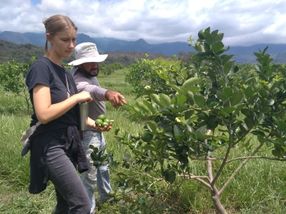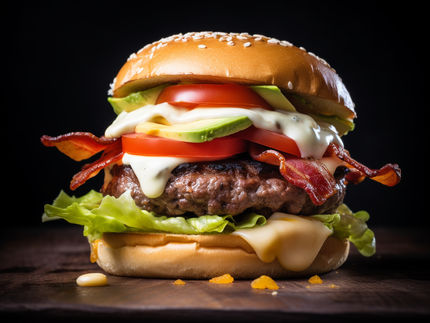Sweet drinks often easier to have than drinking water
Münster University of Applied Sciences student investigated the impact of highly processed foods in Mexico
Advertisement
Mexico occupies one of the top places in international comparison when it comes to obesity. Three quarters of the population weigh too much. Consequential diseases such as type 2 diabetes mellitus are among the most frequent causes of death. This development is primarily due to the fundamental change in nutrition that has taken place in the Latin American country over the past 20 years. International and national food corporations have long since conquered the market, and traditional diets are increasingly giving way to the background. "In some districts, it's easier to get sweet drinks than drinking water," says Louisa Nagel. The oecotrophology student from Münster University of Applied Sciences was in Mexico for a quantitative survey for her bachelor's thesis in the rural community of Cuzalapa. She had previously spent her practical phase at the partner university in Guadalajara.

Louisa Nagel conducted a survey on highly processed foods in a region of Mexico during her oecotrophology studies at Münster University of Applied Sciences. In the process, she also learned about local agriculture.
privat

Packaged and highly processed food is sold in Mexico even in the most remote regions
privat


The region actually has good growing conditions, with many families dedicated to farming. Packaged and highly processed foods, however, are readily available in the most remote stores. "Dietary patterns based on high levels of such foods are associated with negative health consequences," Nagel says. Mexico is one of the global leaders in the consumption of sweetened beverages, fast food and convenience foods.
The English-language seminar "Food and Nutrition Security Assessment" taught by Dr. Jan Makurat, who also supervised her bachelor's thesis, prepared her well for her stay, Nagel says. Food security is not only about the quantity of food available, but also its quality. Nagel surveyed the extent of the impact of highly processed foods in the region and the consequences this has on nutrition. The student paid particular attention to the diet of rural women. "They are among the groups that are particularly affected by food insecurity. Above average, they are often overweight and malnourished at the same time," says Nagel.
Through interviews and questionnaires, she recorded how frequently different food groups with varying degrees of processing were consumed. "A mixed picture emerged in the evaluation," Nagel explains. The women reported eating unprocessed or barely processed foods such as beans or legumes frequently. "This means that elements of the traditional dietary pattern in rural areas still seem to hold up, which is generally recommended and should be viewed positively," Nagel says. At the same time, the women also reported that colas and sodas, as well as industrially produced baked goods, played a notable role in their diets. "This coexistence of foods with different degrees of processing indicates a change in dietary patterns. This change is likely to deepen," Nagel explains.
Meanwhile, the government is tackling the massive problem with laws, programs and appeals. In some states, for example, it is illegal to sell high-calorie snacks and soft drinks to children and young people. Other approaches are aimed at strengthening local structures and promoting home cultivation. Louisa Nagel will continue to work on international food security and development cooperation. From mid-October, she will be working at the Center of Excellence for Humanitarian Aid under Dr. Jan Makurat. The team would like to publish the results from the bachelor's thesis in a technical paper.
Note: This article has been translated using a computer system without human intervention. LUMITOS offers these automatic translations to present a wider range of current news. Since this article has been translated with automatic translation, it is possible that it contains errors in vocabulary, syntax or grammar. The original article in German can be found here.





























































